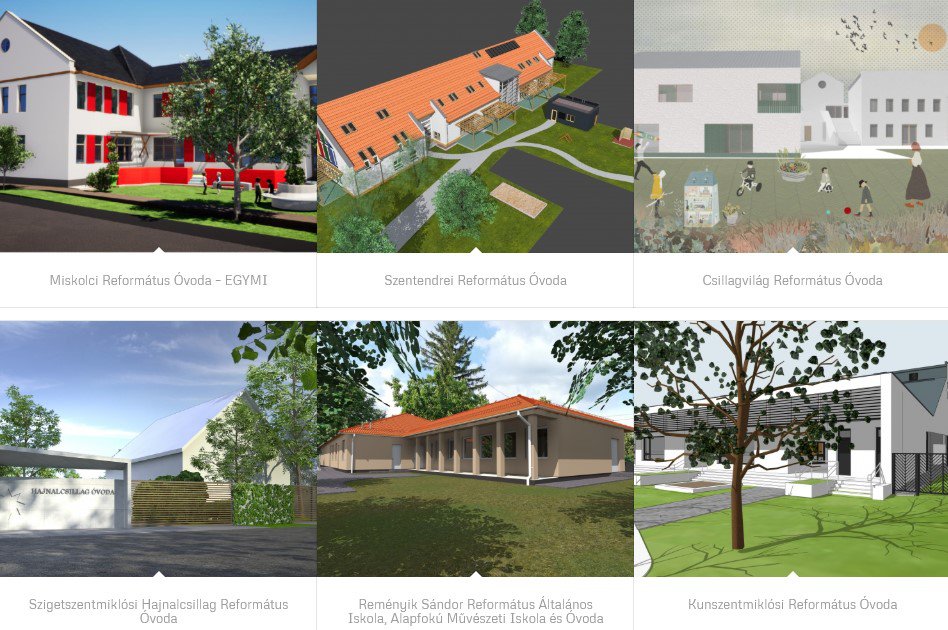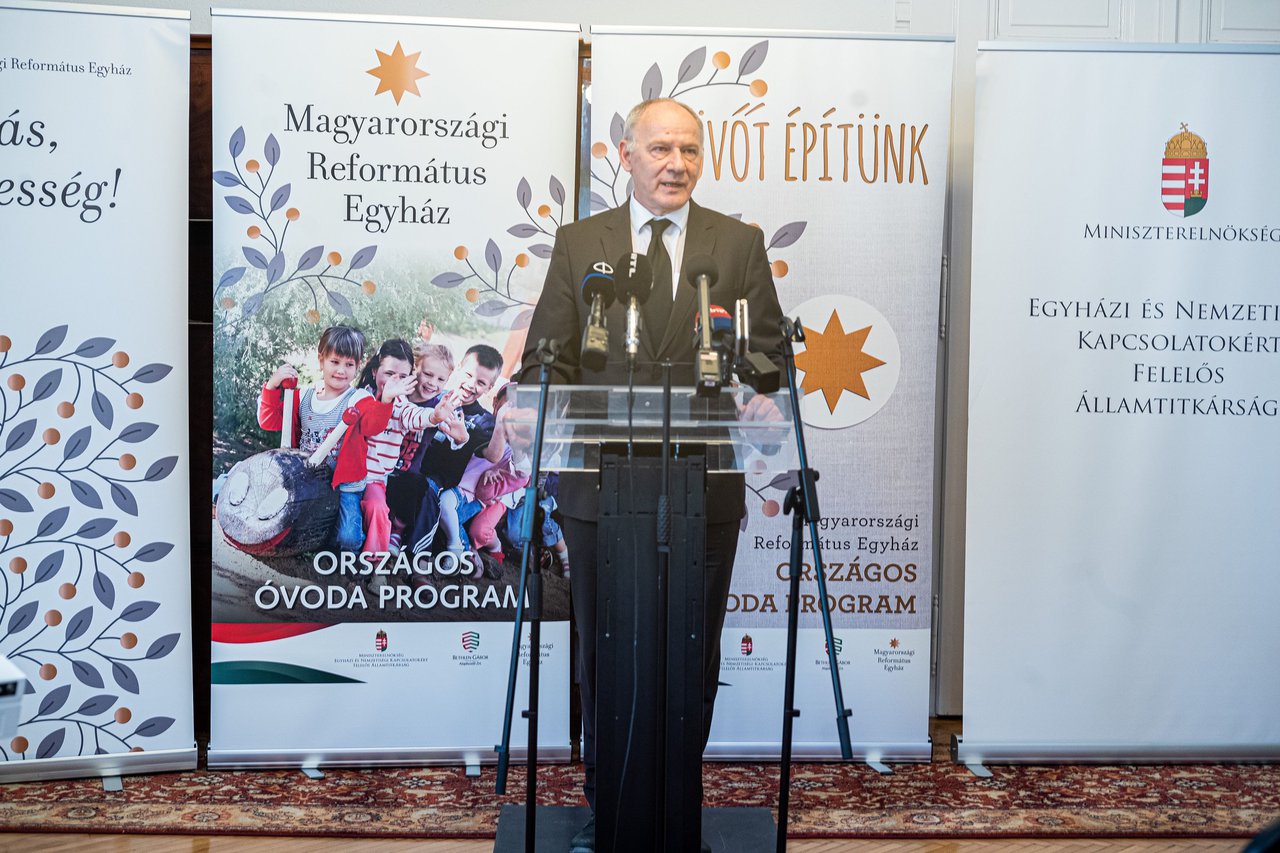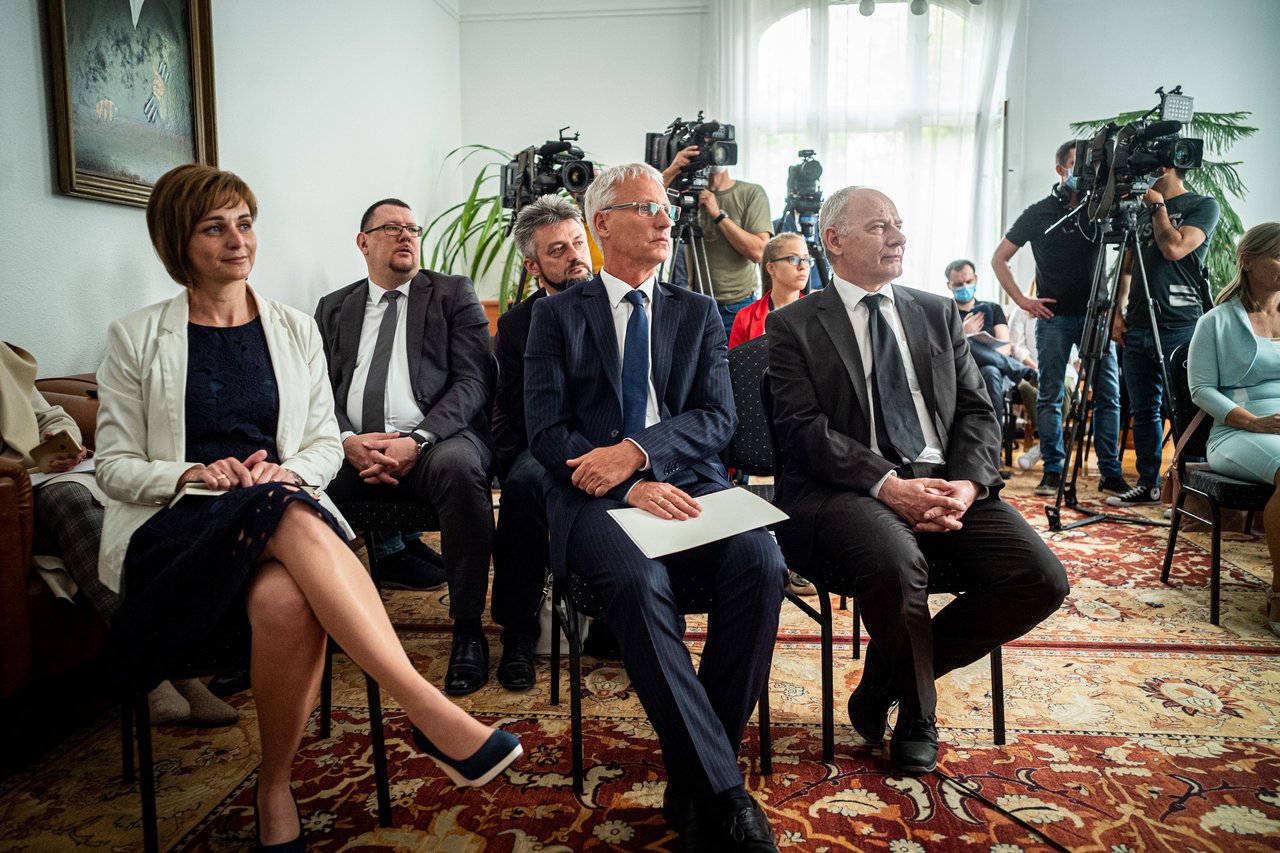
Sixty-six kindergartens are being built and renewed within the framework of the countrywide kindergarten program of RCH, supported by the Hungarian Government. "Our goal is to raise children whom we can be proud of 15, 50 or 100 years later," said István Szabó Bogárdi, Bishop of the Reformed Church in Hungary at a press conference related to the church’s countrywide kindergarten program. The project started in 2018 and is already in progress. In the school year of 2022 another 3200 children and nearly 500 new colleagues can begin the year in new, modern kindergartens maintained by RCH. The Hungarian Government supports the development project with 30 billion Hungarian forints.
"Right now there are 7100 places in our Church's kindergartens, we hope that by the end of 2021 the kindergarten program will be finished and we will be able to receive altogether 9300 children between 3 and 6 years," said one of the lead pastors of the Hungarian Reformed Church. As he said, 66 buildings are being built and renewed. 47 brand new kindergartens will be constructed and 19 already existing existing buildings will be expanded and modernized. There are investments in all those regions where there is a serious demand by Reformed church members and families for institutions operated by the Church.

Bishop István Szabó at the press conference on June 9
The Church's purpose is to create modern buildings where the needs of little children and preschool teachers can be easily satisfied so that pre-schoolers and their parents are received in an appropriate environment. In the high standard pedagogical program of the new institutions professional attitude and Christian values play an equally important role. There are also families who are not Church members, therefore the kindergartens have an important role in the Christian education of the new generations. In many cases, this is the only chance for children to learn about the Bible. Our kindergartens shall represent a set of values that, no matter how fast the world changes, are eternal.
The locations were selected by the leaderships of the four Church districts. The decision was based on demographic surveys and on a preliminary needs assessment among congregations and presbyteries who will maintain the institutions in the future. The projects includes 23-23 kindergartens in the Transtibiscan (Debrecen) and Danubian (Budapest) Church districts and 10-10 institutions in the Cistibiscan (Miskolc) and Transdanubian (Pápa) districts.
At the press conference Bishop Szabó pointed out that recently there have been a lot of conversations and reflections about the trauma of 100 years old Treaty of Trianon, but we should not forget that the number of Hungarians has been decreasing since the 18th century. “An important issue for those thinking about having children is whether they can be raised in appropriate, safe, good conditions. As for us, we would like to help reverse the declining trend with our well-built kindergartens and our professional pedagogues are working in the spirit of the Bible to do just the same," emphasized the ministerial president of the Church. “We asked the question about the meaning of the past 100 years, but we are also looking at what the next 100 years will bring. Our goal in this is to raise children whom we can be proud of in 15, 50 or 100 years," he added.

Modern and environmentally conscious devices, such as heat pump equipment and solar panels using renewable energy, will play an important role in the construction of new kindergartens. The outdoor environment of the kindergartens will also be designed in accordance with the requirements of the 21st century, in many places the playgrounds will be suitable for barrier-free use, and various devices will be installed to improve children's coordination for outdoor recreation.
Sharing Christian values and spirituality is a priority in the pedagogical program. In addition to general education, the Reformed Pedagogical Institutes will focus efforts on offering personalized help of emotional and cognitive developments of the children, and ensure proper preparation for future schooling, irrespective of the children’s’ social and familial backgrounds, as well as their individual skills. This approach and principle of equal opportunities is a neglected issue in recent years in Hungary, causing the burden of educating children to increase. The institutions will also implement technology-aided assessments of sensory-motor functions in early infancy.
Translated by András Tóth